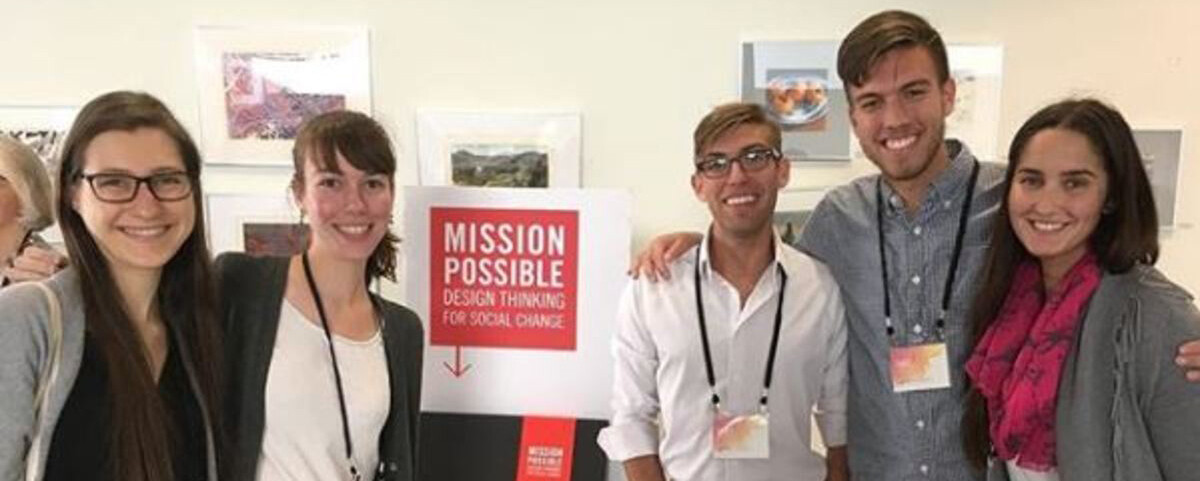University of Maryland launches new ministry model
 By Melissa Lauber
By Melissa Lauber
There was a time when campus ministry consisted of pizza, frisbee, deep questions and good music. But over the years, ministry to college students has grown more nuanced and complex. And today, at the University of Maryland, a new model of campus ministry is being born – campus ministry with, rather than for, students; ministry that calls forth disciples and leaders in a way that draws on the gifts of the students themselves.
Plans are underway for a July 1 start to pilot this innovative model. “In place of a single, full-time campus minister, a three- to four-person ‘Ministry Hub’ of young adult interns will provide ministry leadership. Each of these young adults will be paid to work approximately five to seven hours a week, under the guidance and coaching of an experienced ministry project manager,” explained Christie Latona, the BWC’s director of Connectional Ministry.
A clergyperson will serve as the official university chaplain and a team of three--including Campus Ministers at Howard and American universities--will support chaplain office hours on a student-driven schedule, Latona said.
In campus ministry, “the students are at a point in their lives when they deconstruct and reconstruct a set of beliefs and traditions for themselves, said the Rev. Brett Pinder, campus minister of The Wesley, the campus ministry at the University of Maryland. “You get to help them discover whether or not religion has a role in pointing to what is meaningful in life and how their thoughts, passions and energies will be expressed in daily living and caring for the world around them.”
But in recent years, the traditional models of ministry at the 41,200-student campus was not living up to its full potential, Pinder admits.
The Baltimore-Washington Conference currently provides primary support for campus ministries at four of more than 60 colleges and universities within the bounds of the conference. These efforts engage fewer than 200 of the more than 400,000 students in the region. The vast majority of the conference’s mission shares allocated for Young People’s Ministry (approximately $350,000 of $400,000) is being invested in these four campus ministries.
At the University of Maryland, Pinder said, approximately 20 students are involved in The Wesley at UMD with an average weekly participation of 6-8 students. They have been doing good ministry developing partnership with the Muslim Student Association and helping students to grow in faith to become creative change-makers in the world.
But the possibilities, he said, are limitless.
As conference leaders have more intentionally focused on young people’s ministries during the past year, they worked with Ministry Architects, a Tennessee consulting group, to develop a renewed vision for young people’s ministry including campus ministries.
“The church has traditionally treated young adults almost entirely as recipients of ministry rather than agents of ministry. We are convinced this approach misses the mark,” said Mark DeVries, the president and founder of Ministry Architects.
DeVries has worked with models similar to the Campus Ministry Hub and has found that the most exciting thing in experiments like these “have come as young people try on ministry for themselves, especially in the context of a well-supported, well-aligned ministry team of peers,” he said. “The faith of Jesus’ (young adult) disciples was profoundly shaped by being sent out to actually do ministry, well before any of them had completed a training course in leadership.”
At the University of Maryland, Margaret Brown, a campus ministry student leader and member of the Interim Young People’s Ministry Board, believes The Wesley needs to be a rock that students can rely on as they seek stability and ways to grow in full and chaotic lives. She sees campus ministry as “the connective tissue” that keeps students engaged with God when they are away from their home church.
While Brown is sad to see Pinder move on, she and other students say they are excited about the Ministry Hub, because it will allow student leaders to come with their own passions and motivation to enact ministry.
“I know this could be a big step toward creating a more sustainable and wider-reaching campus ministry network, which we really need,” she said.
The Rev. Laura Norvell, chair of the University of Maryland Campus Ministry Board, is also enthusiastic about the new Ministry Hub model.
“Many college students are leaving home for the first time, the place where they’ve been formed, at a critical point in their own physiological, psychological and emotional development. They arrive on campus in the active phase of becoming a new thing,” she said. “We have the opportunity for that be spiritual unfolding with good campus ministry.”
Norvell’s grandparents, she noted, met at the Wesley Foundation at the University of Illinois in 1921, shortly after this movement of college ministry began in the Methodist Church. Much has changed, over the decades, she said, “but the need for community and for one-on-one relationship has not. Young people are still seeking tribes to which they can belong. The Wesley should continue to offer that opportunity.”
In April, the process of hiring the student interns begins. For those thinking about applying, Brown wants them to know that “we are a group that likes to think and ask questions. We are very open to new ideas and experiments. I would want them to be similarly open and curious.”
Pinder points out that the interns will be guided with training, coaching and mentoring as they move into this new opportunity to grow in leadership skills.
Those involved in creating the new model acknowledge that change can be hard and messy.
“But we believe that the UMD Ministry Hub Initiative can provide a laboratory for incubating creative ways to do campus ministry throughout the conference and beyond,” DeVries said. “The conference has decided that these must be years of bold experimentation and creativity, especially when it comes to young people. Not every experiment will work, but the commitment to working the deliberate process of innovation almost always does work.”
Norvell echoed this need for bold innovation.
“We will not get new results trying to do the same thing,” she said. “The world is changing, and the church must find new ways of reaching, and shaping, and nurturing leaders. My prayer is that we can give this new model space to test new ideas, to occasionally fall short, but to learn to grow and become something that really is owned by young people for young people who are seeking to become more faithful in their discipleship journey.”
“We are just beginning to scratch the surface,” said DeVries, “of what could be done in campus ministry if young people are invited and empowered to actually do the work of ministry.”
>Learn more and apply


This is really cool - nice work guys!
And go terps!